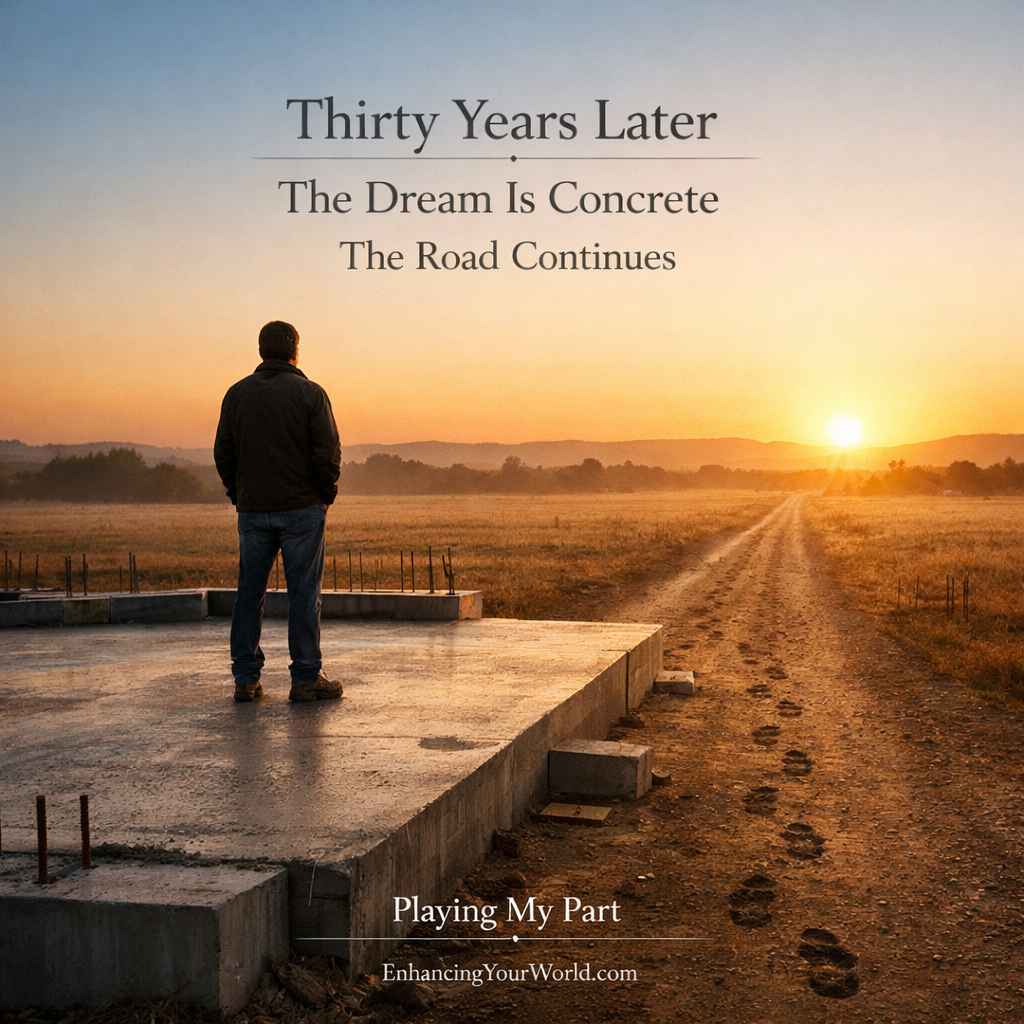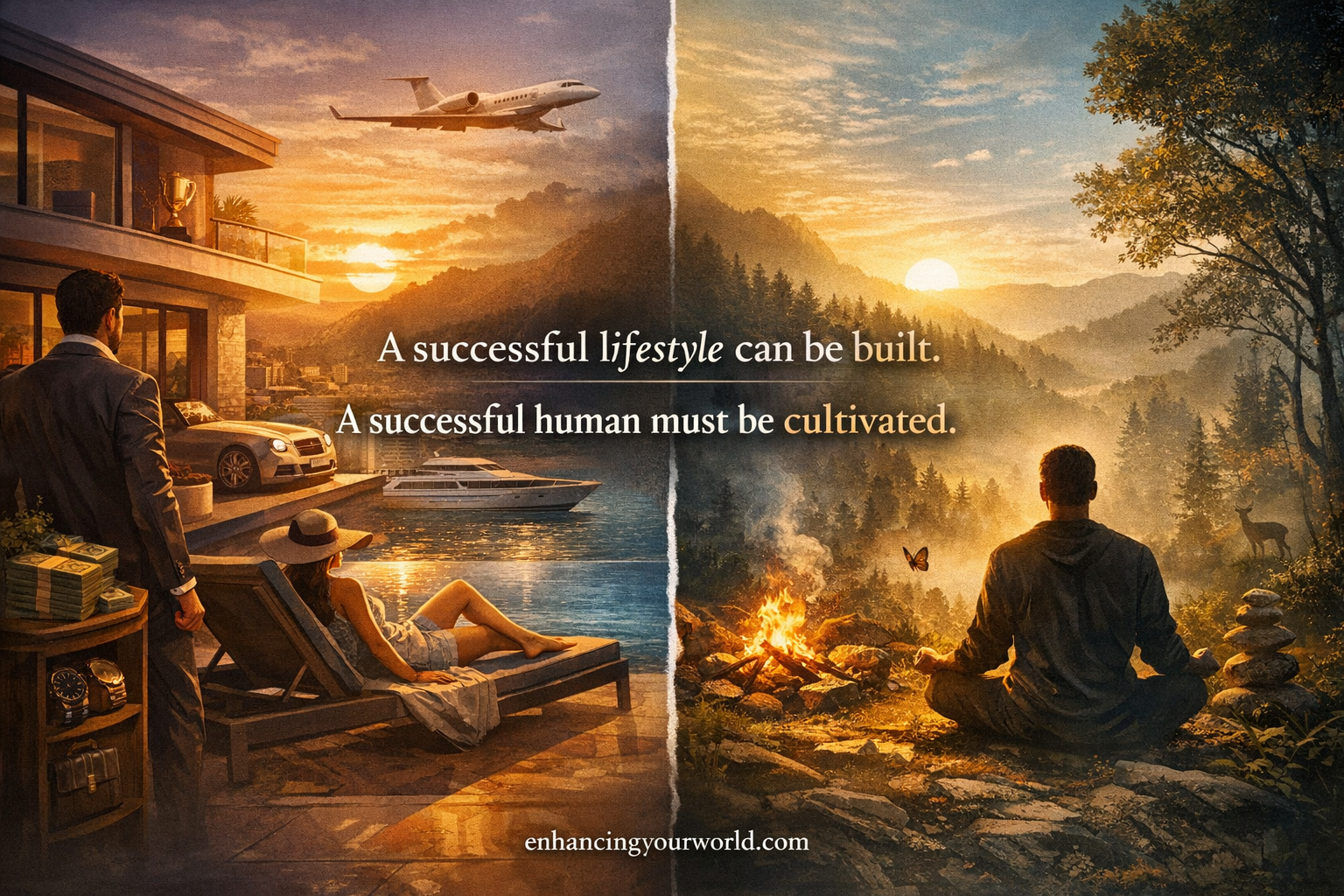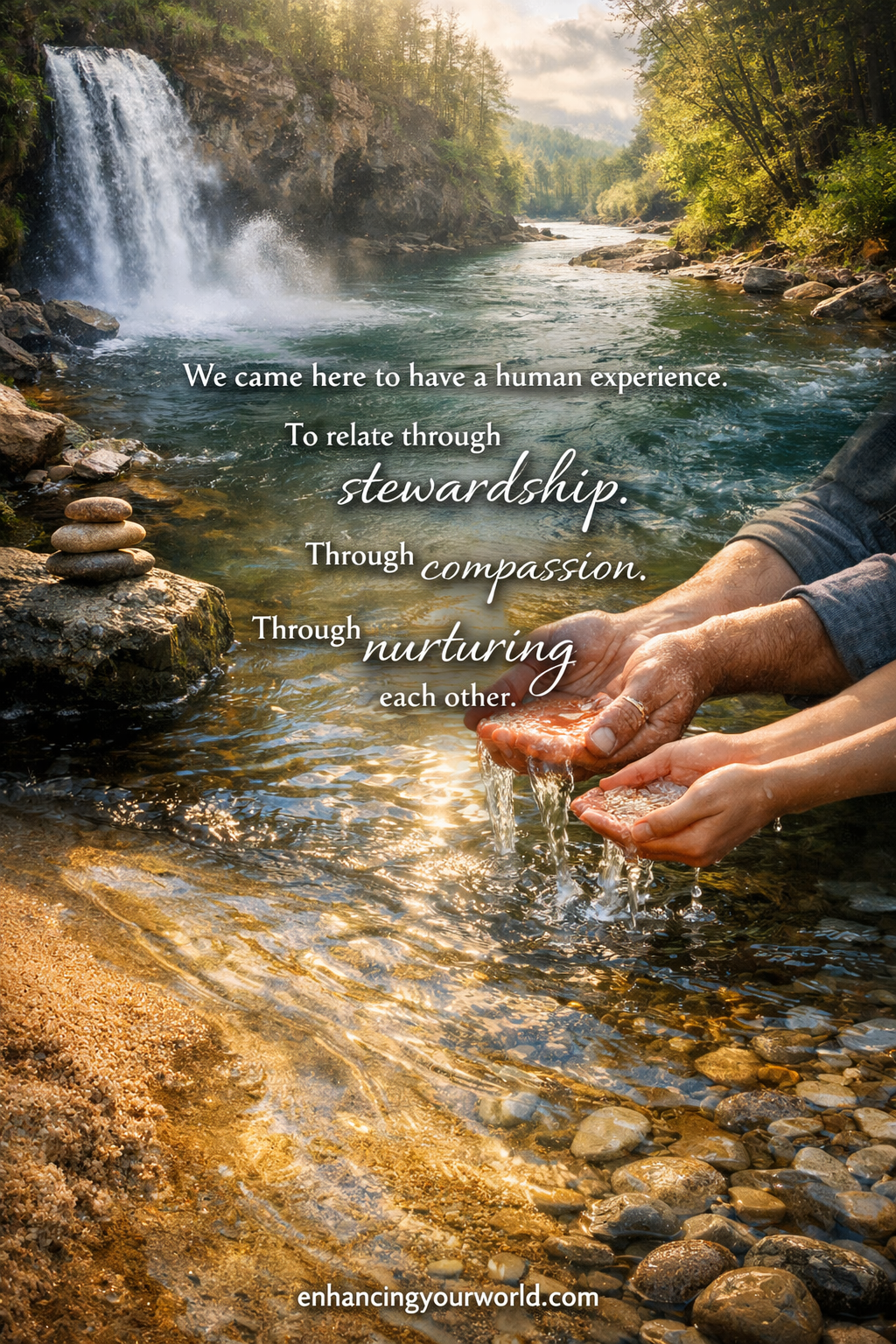The Personal Challenge of Being Visionary and Heart-Led Dreams become concrete. The road continues. And…

Commitment: The Identity We Choose and the Purpose We Serve
Commitment: The Identity We Choose and the Purpose We Serve
The challenge is not commitment itself, but what we commit to.
Many of us first commit to identities:
— the survivor, the provider, the healer, the rebel, the entrepreneur, the seeker.
We commit to personas that arise from our experiences, our traumas, our environments. We commit to our professions, chasing definitions of success that often come from someone else’s blueprint. We commit to relationships to avoid loneliness, or to complete an idea of who we should be.
And while each of these forms of commitment may hold lessons, they can also become limitations when they are not examined. When we identify too closely with a role, we begin to perform it rather than live it. We become trapped in performance, imprisoned by the very identity we once chose freely.
But commitment is also a teacher. And in its highest form, it offers us a bridge—beyond identity and persona—into purpose.
Identity as Initiation, Not Destination
Our first commitments are often survival-based. We learn to be who we think we need to be to stay safe, accepted, loved. But the true initiation begins when we outgrow those survival roles. When we begin to question:
- Who am I when I’m not performing?
- Who am I when I stop chasing validation?
- Who am I when I let go of who I’ve been?
The path of purpose begins when commitment shifts from trying to be something to simply being with something higher than ourselves.
This higher commitment may look like:
- Devotion to healing, even when it’s uncomfortable.
- Service to others, without attachment to being seen.
- Alignment with truth, even when it costs us comfort.
- Love that expands beyond preference into presence.
The Containment That Frees Us
To commit to a higher path is to accept a form of containment—but not one rooted in ego or societal pressure. It is a containment born of reverence. Like water held in a sacred vessel, the containment of discipline and devotion allows energy to build, to deepen, to transform.
This is how mastery is cultivated. This is how sacred relationships are built. This is how integrity is refined—not by being everything to everyone, but by being fully one with what we’re here to serve.
When we commit to a higher way of being, we don’t lose ourselves—we discover ourselves. We find the freedom that only comes from choosing depth over distraction, soul over spectacle.
Commitment in Relationships
In relationship, the immature commitment seeks control, security, or codependency. But the mature commitment invites transformation. It allows us to witness ourselves and one another not as fixed characters but as evolving consciousness.
When we commit to a person not as a possession but as a sacred mirror, every trigger becomes a teacher. Every conflict becomes a curriculum. Every shared moment becomes an invitation to remember that love is not something we find—it is something we become.
But that requires us to loosen the grip on identity, ego, and outcome—and instead commit to the higher learning that the relationship is revealing.
Committing to the Unseen: A Higher Purpose
The deepest commitment is often not visible. It’s the quiet choice to keep walking when no one is watching. It’s the willingness to pause rather than react. To sit in stillness rather than perform. To be honest rather than impressive.
Purpose isn’t a role you play. It’s a presence you become. And commitment to purpose is not always glamorous—it’s often humbling. You will outgrow people. You will be misunderstood. You will face days of doubt. But the commitment keeps you grounded. It brings meaning to the pain, clarity to the confusion, and peace to the process.
You begin to realize you’re not here to be everything. You’re here to be true. And in that truth, you become a vessel not just of identity—but of transformation. Of remembrance. Of love.
🌱 Reflection Prompts
- What roles or identities have I committed to out of survival?
- What identities am I ready to release?
- What does commitment to a higher purpose feel like in my body?
- How can I bring devotion into my relationships, not just obligation?
- What is the deeper truth I am committed to, even when no one sees it?



